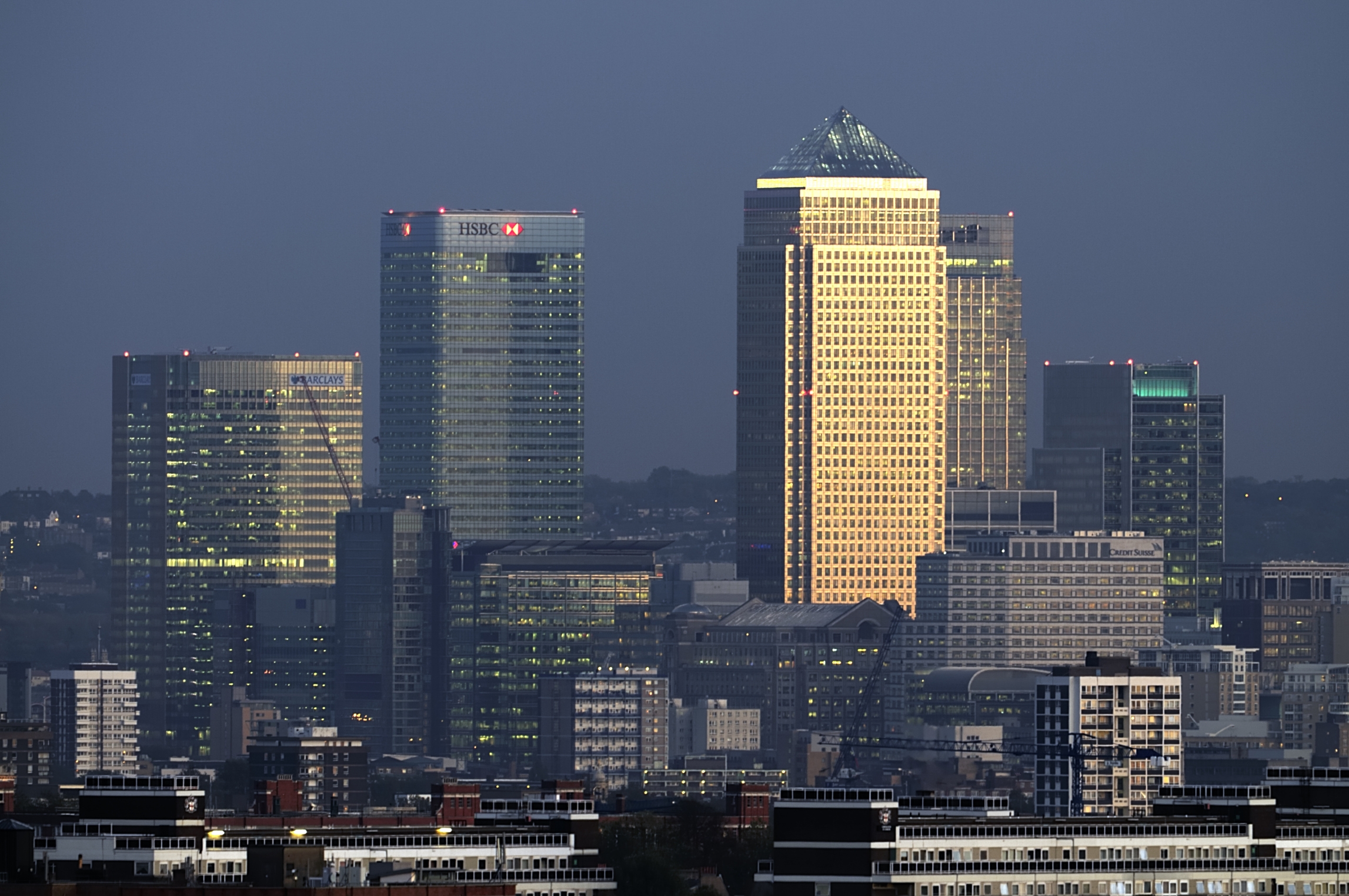
So many momentous events have happened globally in the last decade or so. Whether we are talking politics or finance, international relations or culture, technology or social progression, we are living through what the Chinese – in their obsession with stability and order – call pejoratively “interesting times”.
From 9/11 to the wars in Afghanistan and Iraq, from the Arab Spring to the frosty brutality of the Syrian conflict, international politics has certainly not been run-of- the mill. In the midst of all this, we’ve also seen the election (and re-election) of the first black American president of the United States which all neatly puts paid to Francis Fukuyama’s premise – at the end of the last century – of an ‘End to History’. His view was that the collapse of the Berlin Wall (1989) together with the Soviet Union’s demise (1991) and the resultant victory of Western liberal democracy signified the end of ideological history. How wrong he was. Because, no sooner had this grand theme percolated in academic and political circles then along came Samuel P. Huntington with his ‘Clash of Civilizations’ which foreshadowed the rise of Al Qaeda and Islamic fundamentalism.
Likewise, in finance matters, the world has witnessed a rupture of the status quo. The recession or depression (depending on one’s point of view) has directly and indirectly impacted millions of people on opposite spectrums of the economic pyramid. The collapse of Lehman Brothers in September 2008 set off a chain reaction of events that threatened to topple the global financial system. At the other end of the scale but inter-linked, a great number of people were left destitute as a result of foreclosures that arose due to the unravelling of complex derivative products based on underlying sub-prime mortgages.
On the global inter-nation economic arena, China has emerged as a financial and business superpower with other countries such as India, Brazil and Russia (collectively known as the ‘BRICs’) starting to develop more assertive voices on the international stage.
Coupled with all this has been a startling technological revolution pioneered by billion dollar companies such as Google/YouTube, Apple, Facebook, Twitter and Linkedin which have all become international household names.
And then, there’s been Africa. Africans today (whether in the Diaspora or otherwise) are increasingly taking their lives into their own hands and rejecting both the conventional wisdoms and the nodding shibboleths which other people (both within and without their territories) are attempting to foist on them.
Africa’s economic growth has hastened remarkably in the last few years. According to the Mckinsey Global Institute Lions on the Move – African Economies Report (2010) (MGI Report 2010), real GDP rose by 4.9% a year from 2000 to 2008, twice the amount from the generation before. Africa’s collective GDP at 2008 was $1.6 trillion (roughly equivalent to Brazil or Russia’s) and it’s now $2 trillion. Sectors like banking, retail, telecommunications, transportation, construction, agriculture, manufacturing, real estate have all boomed. And, the growth has accelerated in 22 of its largest 30 economies with predictions that the trend is set to continue. Add to this the recent story that the number of billionaires in Africa has just been revised up from the previously-thought 16 to a figure of 55 and you get a picture of a region very much on the rise.
In terms of democracy and security, the continent has also made huge improvements recently. Whilst the situation is far from perfect, it is ironic and important to state that the riskiest countries in the world today are actually in Latin America, the Caribbean and the Middle East – not in Africa. Many African governments have made great strides in recent years to uphold political stability. Of the 10 major conflicts in the world today, just 3 are in Africa – a striking turn-around from the previous decades. The vast majority of the countries in Africa today are democratic (31) including former notorious war zones like Rwanda and Sierra Leone and the prospects for remaining so seem very favourable.
With regards to culture (both pop and otherwise), the continent is booming. Nigerian music and films are sampled from Egypt to South Africa. The tunes of D’Banj, the Senegal-born Akon (and others) as well as the compelling stories coming out of Nollywood are breaking out even further afield. The novels of writers such as Chimamanda Adichie (‘Half of a Yellow Sun’/’Purple Hibiscus’) and Taiye Selasi (‘Ghana Must Go’) are well-received internationally with the movie version of ‘Half of a Yellow Sun’ now playing in international cinemas. In the art world, Bendu Cooper’s Gallery of African Art in London’s famous Cork Street is displaying interesting pieces and Touria El Glaoui’s 1-54, the first ever African contemporary art fair held in London, made waves when it exhibited a pan-African selection at Somerset House last month.
So, with all these dramatic changes happening in Africa and elsewhere, the question has arisen: what’s in it for us in the Diaspora? Or, more specifically, as an African based in the West, as a Nigerian living in the UK – an Afro-Saxon (if you will), where am I best placed to live so as to take advantage of this rapidly changing world?
And, does it matter where one lives given that globalisation means the world has shrunk remarkably and one is only a couple of clicks away from one’s favourite films, music, books, food and other lifestyle desires?
The words we – those in the Diaspora – have been asking ourselves are similar to those crooned some time ago in that piercing track ‘Should I Stay or Should I Go?’ by the Clash – words that echo constantly:
“Should I stay or should I go now?
If I go there will be trouble,
And if I stay it will be double”
In making that decision, you have to weigh up all sorts of things:
- If I go there will be trouble – absolutely, there will be. Many of us haven’t lived in Africa for a long time. We are used to a certain lifestyle here and, by lifestyle, I mean that in a very broad context. It’s very easy to take for granted the infrastructure and surroundings that Europe provides and the lack of those things – certainly to Western standards – could be a culture shock. Yet, despite all this, many people that I know who had lived in the West just as long as those of us who remain, have made the journey back and adjusted comfortably.
- And if I stay it will be double – Well, I’m no mathematician or scientific pollster so it’s hard to measure this accurately. But, the fact remains that a lot of ethnic minority individuals have (in the last few years) been packing up their bags and heading back to their respective motherlands. And, the reasons they have been citing? Apart from the perceived lack of opportunities in the UK due to very difficult economic times, they have also been talking about issues surrounding identity and equal representation. By which they mean: are we (people of colour) getting a fair crack of the whip here in UK society? Do we have a big enough (if any) stake in UK Plc – professionally, socially and spiritually?
Here’s what a leading African professional explained to me about his time at one of the top firms. A brilliant chap with a first class degree from a leading UK university and an Oxbridge Masters, he lamented to me after one particular appraisal from his boss. Apparently, the boss had given him a good appraisal but, out of the blue, he suddenly hit him with that old stereotypical chestnut:
Listen, Mr X, we know you’re good at your job, but what we were worried about was your application”.
To this day, Mr X (his first name is not Malcolm, by the way) still does not know why they had any reason to question his application. He always turned up early and left late. He constantly made sure he was on top of all his files and he cultivated his clients assiduously.
And, no doubt, when the time comes to make up new directors and partners in the firm all that unconscious bias (at best) and something entirely different (at worst) may well come into play in assisting the board/partnership to make those decisions. Suffice it to say that he’s no longer at that firm and had to start again elsewhere (i.e. abroad) in an environment with more transparent structures where he became a member of the board.
But, that’s just one person, in a closed-off profession – so to be expected, right? Well, actually, no.
This tends to be all-pervasive. Wherever you look – whether it’s in politics, finance, business, law, advertising, public relations, publishing, broadcasting, fashion, the police, the army, the Church of England and others, you have to ask: where are the faces representing people of colour? Yes, there is smattering here and there. Chuka Umunna is on the front bench of Labour politics, there is Tijane Thiam heading up Prudential and the newly-installed editor of the Independent, Amol Rajan is of Indian origin. But, surely there must be others. And, if there are others, why are they not been promoted and/or pushed forward as leading representatives of the company, firm or partnership? According to Michael Eboda who runs the Power List of the most powerful and influential African/Afro-Caribbean figures in the UK, the numbers should be proportionally higher in business and finance alone.
The usual retort when you ask such a question is normally: “well, you can’t promote by quota – it has to be by merit” but my question in reply would simply be: “who decides what is merit and what is not merit?” Are they deciding that fairly? Are you sure there are not vested or, even tribal interests involved? To coin a phrase from that old Roman satirist Juvenal: “quis ipsos custodios custodiet?” – translation: who shall guard the guards themselves?
Even in the entertainment world, three decades after he became a household name, Lenny Henry still complains about the lack of minority faces on our television screens. So many black actors lament about having to go to America or even, Africa now, to find roles because there are not enough for them here and it’s only when they’ve ‘made it’ abroad that UK executives suddenly get excited and hurriedly institute programmes to house their talents (Idris Elba and ‘Luther’ being a case in point after his US success with ‘The Wire’). Likewise, in fashion, Naomi Campbell often berates her industry for not doing enough to level the playing field for black models. I could go on and on.
Nobody is suggesting that Africans or Afro-Caribbeans in the UK should be installed in high places without merit simply to satisfy sociological experiments but why can’t we (for example), fairly, customize the criteria that lead people to get there in the first place?
Not everyone can afford to go to the best schools that lead to the best universities that lead to the best jobs. Not everyone has the right connections to place their children in internships at PR firms or in media houses when they are 18, 19 and 20. Not everyone has the means to encourage and support their children to go to India or Peru for their gap year which can develop the confidence and independence that helps youngsters to thrive (going forward) in an adult world.
And, symbols are important. Having and seeing, regularly, somebody that looks like you in a prominent and high-profile position is, undoubtedly, a powerful symbol of hope and aspiration with attendant and positive consequences for society as a whole.
This is especially the case if you happen (through no fault of your own) to have no job or immediate prospects, if you keep on hearing inferences in the media that you (and people that look like you) are inherently feckless and irresponsible and all of a sudden, the streets and gangs do not seem so unattractive after all as a place to obtain a perverse sense of belonging and self-esteem. This is not, in any way, a justification for criminality or delinquency but I’m just explaining how these things can happen.
Of course, I’m not advocating that having a dearth of role models leads directly to people either taking to the barricades or packing up and leaving the country but it can certainly have an effect which is then compounded by other factors (stop and search, anyone?).
Just as a bit of fun – let me put this quick question test to you.
Do you (hand on heart) believe that if Obama (a man raised by a single mother/grandparents and nourished at times through food stamps) had grown up in an equivalent version of the UK, he could have risen to be today – even in supposedly tolerant and inclusive Britain -, say, leader of Her Majesty’s Opposition and/or Prime Minister?
That Colin Powell, in his day or even now, could come through the ranks of crusty old soldiers and be selected Chief of the Defence Staff?
Answers on a postcard, please.
The fact of the matter is that, if these issues are to be resolved in any meaningful way, it will require a huge emotional and attitudinal shift – not just from policy makers, opinion formers and business creators – but also from the populace and electorate at large in the UK who are predominantly Caucasian about the role they want people of colour to play in modern British society. These issues about inclusivity and belonging are starting to be addressed but for every Danny Boyle with his wonderfully all-embracing London 2012 opening ceremony, we get the comments of one former political aide who described the event (inter alia) as “multicultural crap”.
It’s all very well demanding (especially, since the atrocities of July 7 2005) that ethnic minorities should assimilate and integrate much more into the heart of British life but what happens if/when they get to this so-called “Promised Land”? They still find themselves banging their heads against an invisible glass ceiling.
“Should we stay or should we go?”
I think – ultimately – that’s up to other people to decide.
……………………………………………………………………………………………………………….
IMPORTANT ANNOUNCEMENT
Leke Adebayo takes this opportunity – in advance – to declare unreservedly and without hesitation that HE DOES NOT HATE BRITAIN and any interpretation of this article in that way is inaccurate, wrong and misguided. He happens to like Britain a great deal but nowhere is perfect.












